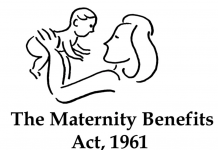This article has been written by Aayushi Singh from Rajeev Gandhi National University of Law, Patiala. It has been written to analyse the study of substantive and procedural laws for offences against women.
Table of Contents
The Protection of Women from Domestic Violence Act, 2005
Domestic Violence Act, 2005 gives the lawful meaning of “abusive behaviour at home” under Section 3. The Domestic Violence Act is pertinent to the entire of India aside from the State of Jammu and Kashmir. It is a common law which centres around the reliefs given to the abused lady, for example, pay, insurance, right to habitation in the “mutual family unit” and so forth., dissimilar to in the criminal law, where the prime spotlight is on rebuffing the denounced. It covers a wide range of viciousness looked by a lady at her “mutual family unit”.
Abusive behaviour at home incorporates making any damage or injury and threatening the security, life, wellbeing or prosperity of the oppressed lady by submitting any physical, sexual, verbal or monetary maltreatment. In addition, it likewise incorporates any injury or mischief done to the oppressed lady or her relative so as to pressure her or any individual, to fulfil unlawful endowment need. Dangers to submit viciousness are likewise secured under this definition.
The protection of women from Domestic Violence Act, 2005 gives the lawful meaning of “Aggressive behaviour at home” under Section 3. The Domestic Violence Act is applicable to whole of India aside from the State of Jammu and Kashmir. It is a common law which centres around the reliefs given to the wronged lady, for example, pay, insurance, right to the living arrangement in the “mutual family unit”, among others
“Verbal and Emotional Abuse” incorporates affronts, scorn, mortification, ridiculing particularly with respect to not having a kid or not having a male youngster and rehashed dangers to make physical agony any individual whom the wronged is keen on. Verbal and Emotional maltreatment can likewise happen in a few structures, for example, character death of the wronged lady, ridiculing, ridiculous remarks with respect to not bringing share, taking steps to end it all as a strategy for compulsion, forestalling a lady to get hitched according to her decision and so on.
In conclusion, “Monetary Abuse” is denying the distressed lady from a wide range of budgetary assets to which she is qualified for under any law or custom or legitimate request or which she requires due to legitimate need, for example, for running the family, dealing with the kids and so forth. It additionally remembers estrangement of the versatile or steady resources for which she has intrigue as well, disallowing the distressed lady or putting a limitation on her to proceed with the utilization of assets or offices. Courts have likewise deciphered not offering food to the bothered individual, meddling with the oppressed individual’s capacity to get work, driving a lady away from her activity and so on as a type of monetary maltreatment.
The DV Act is relevant to all ladies, regardless of their conjugal status, age or strict convictions. The wide meaning of “aggressive behaviour at home” under the DV Act secures the privileges of ladies ensured to them under the Indian Constitution, to accomplish a viciousness free home.
Medical Termination of Pregnancy Act,1971.
According to the Medical Termination of Pregnancy (MTP) Act, 1971, MTP is the legal premature birth of an embryo, and it engages a lady to conclude whether to proceed with her pregnancy or end it. It is a liberal law which empowers enlisted clinical professionals to end a pregnancy for social and socio-medical reasons, just as for reasons of peril to the wellbeing of the mother. It saved ladies from “delivered pregnancy” and “constrained parenthood.”
This Act was altered in 2002 and a portion of the notable focuses incorporate changing of “maniac” to “intellectually sick individual;” MTP just in government emergency clinics or a spot affirmed by the legislature or a region level council established by that administration with the central clinical official or region wellbeing official as the executive of the said board of trustees, end of pregnancy just by an enrolled clinical professional; the discipline of the proprietor of a spot which isn’t endorsed for MTP; prerequisite of a solitary specialist’s feeling regarding whether an end is shown for baby less than 12 weeks; understanding of two enlisted clinical experts where the length of pregnancy is 12-20 weeks; end of pregnancy at any phase by a solitary enrolled clinical expert for a situation where he is of the assessment shaped in compliance with common decency that end of a pregnancy is promptly important to spare the life of a pregnant lady, and so forth.
Harassment at workplace Act, 2013
Section 4 of the 2013 Act accommodates formation of an Internal Complaints Committee and leaves the choice of its individuals on the business. The motivation behind the ICC is to be a self-administrative procedure, an in-house instrument, guaranteeing that there are no outer expenses or factors for the female representatives with regards to announcing a dangerous workplace.
The particular business has the carefulness to choose these individuals with the main admonition being that the Presiding Officer of the panel must be the senior-most female worker in the workplace. There are in any event two different individuals from the working environment and one autonomous part to be assigned by the business to finish the development of the ICC.
ICC not delegate in it’s working
The tact given to the business to choose individuals from the ICC can now and again lead to all the individuals being from one specific class in the working environment. In a work environment, there is typically an intrinsic pecking order between posts that makes various classes of representatives. Customarily, there are administrative jobs distributed to a couple of workers, different representatives that report to them, and as a general rule, there is going with helpful staff. In any case, the 2013 Act doesn’t command the business to guarantee that the individuals so designated are illustrative of the considerable number of classes of workers.
No Liability
This issue may likewise originate from the way that the businesses are not at risk for remuneration to the complainant, or punishment for the activities of a representative if the claim of lewd behaviour is demonstrated. The 2013 Act, by not fixing a risk on the business in the event of lewd behaviour claims in the work environment, leaves the arrangements to be at the phase of unimportant consistency with no genuine and considerable motivation to the business to guarantee its adequacy. The absence of such an obligation makes the lawful obligation of giving a lewd behaviour free working environment just minor empty talk to the powerful destinations sought after by the law.
Offences related to marriage
There are many offences related to the marriage of women, in which they were treated with cruelty by her husband and family members in the greed of dowry. Chapter XX ( Section 493-498) IPC, deals with such issues. The main offences under this chapter are:
- Bigamy (section 494-495)
- Mock or Invalid marriage (section 493-496)
- Adultery (Section 497)
- Cruelty by husband and relative (Section 498A)
- Criminal elopement (Section 498).
Decriminalising of Adultery
In regards to bringing change in the law a 41-year-old man, Joseph shine filed PIL under Article 32, challenging the constitutionality of Section 497 of IPC. On page no. 45 of the same petition shine quoted certain famous women right activist like Kofi Anna, Marry Wollstonecraft and Ralph Waldo to emphasize more on gender equality. In response to this, the ruling BJP party member opposed the idea of decriminalizing Sec 497 and said it would be a threat to the pure institution of marriage and bond between the couple. But on 28 September 2018, the Apex Court struck down section 497 of IPC and decriminalized adultery and said. “ Adultery is no more an offence”. This judgement of Joseph Shine V. UOI became one of the landmark judgments of India. This decision was taken by judges bench compromising CJI Deepak Mishra, D.Y Chandrachud, Indu Malhotra, and Nariman. On that date, 158-year-old colonial law was stuck down that shows women as an object of men. Before it a 157-year-old law was also struck down that was decriminalizing gay sex and recognition of rights of LGBTQ. This case was decided with full consent of the bench. CJI Deepak Mishra said that. “ wife is no one servant of the husband” whereas D.Y.Chandrachud said that the law perpetuates the subordinate status of women.
Dowry death
Dowry is the amount of money or gift that is demanded from the bride’s parent, either wilfully or forcefully. Many times the parent of a groom out of greed demands extra money and gifts even after many years of marriage and on not receiving such they start torturing the bride, for example, burn them alive, etc. To protect women from such causes the IPC under section 304-B, Section 113-4 of Evidence Act, 1872, Section 174 of Code of Criminal Procedure, 1973 and section 2 of Dowry Prohibition Act, 1961 provides them remedy in any such instances.
Acid Attack
It has been a very common and serious problem in today’s world where women are threatened by the fear of demising there face. Patriarchal society imagines men to be in power by the virtue of there being born. For the protection of women, remedies are provided like Section 326-A and 326-B of IPC,1860 and section 357-B and 357-C of Code of Criminal Procedure,1973. Corrosive Attack is one of the grave offences against the human body which includes curse of an ambush by one individual who throws corrosive on someone else. The Criminal Law (Amendment) Act, 2013 acquainted numerous significant arrangements with the Indian Penal Code. Section 5 of the Amendment Act, 2013 embedded Sections 326A and 326B in IPC. These two arrangements which were recently embedded gives discipline to the offences of causing intolerable hurt by tossing corrosive and wilfully tossing or endeavouring to toss corrosive individuals. The 226th Report of the Law Commission of India had recommended that ‘corrosive assaults’ ought to be made as a particular offence under the Indian Penal Code and pay ought to be paid to the victims. This proposition was considered by the Justice Verma Committee Report in 2013. This Report significantly managed the offences against ladies and prescribed numerous alterations to the current law managing such offences.
The Report of Justice Verma Committee perceived the requirement for acquainting new offence with rebuff the corrosive aggressors. The report proposed that the arrangement under Section 326 of IPC secured the offence of intentionally causing deplorable hurt utilizing hazardous weapons which were the arrangement used to rebuff the corrosive aggressors was lacking, as the offence of corrosive assault is progressively grievous and, as a rule, sexual orientation focused on.
Outraging the modesty of a Women
Part XVI of the Indian Penal Code manages offences influencing the human body. Under the said Chapter, Sections 349 to 374 are identifying the offences that are carried out utilizing criminal power and ambush. Section 354 accommodates an offence which is carried out against a lady by utilizing ambush or criminal power to shock the humility of ladies.
The offence under Section 354 is supposed to be established if the accompanying fundamentals are available in the demonstration submitted
- Utilization of ambush or criminal power against a lady
- The expectation to shock the humility of that lady.
- Who is considered as a Woman under this area?
Section 10 of IPC characterizes the term ‘lady’ as a female person of all ages. Subsequently, the offence under Section 354 can be submitted against the lady all things considered.
Conclusion
Taking everything into account, I might want to underline that sexual brutality represents a snag to harmony and security. It blocks women from taking an interest in harmony and vote based procedures and in post-strife recreation and compromise. As a device of war, it can turn into a lifestyle, when dug in the structure holding the system together, it waits long after the weapons have fallen quiet. Numerous ladies lose their wellbeing, occupations, spouses, families and encouraging groups of people because of assault. This, therefore, can break the structures that stay network esteems, and with that upset their transmission to people in the future.
References
- https://devgan.in/ipc/section/304B/
- https://indiankanoon.org/doc/75407090/
- https://www.thehindu.com/news/national/what-are-the-laws-on-rape-and-sexual-crimes/article30233033.ece
LawSikho has created a telegram group for exchanging legal knowledge, referrals and various opportunities. You can click on this link and join:
 Serato DJ Crack 2025Serato DJ PRO Crack
Serato DJ Crack 2025Serato DJ PRO Crack











 Allow notifications
Allow notifications


